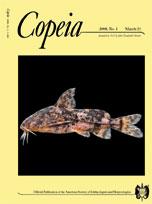We studied the ecology of Anolis nitens brasiliensis during late-dry and early-wet season 2005 in a Cerrado habitat in Tocantins state, Brazil. Most lizards were found on tree trunks or leaf litter in non-flooded igapó forest. Most were found in shade or filtered sun on both cloudy and sunny days. Body temperatures (Tbs) averaged 30.6°C and did not vary among microhabitats. Microhabitats exposed to direct sun consistently reached extremely high temperatures whereas microhabitats in shade or filtered sun provided temperatures throughout the day allowing lizard activity. Nineteen prey categories were found in lizard stomachs, but the diet was dominated by spiders, crickets/grasshoppers, ants, and beetles. Although lizards that ate large prey ate fewer prey, no correlation existed between size or number of prey and lizard body size (SVL). Males were larger in SVL and mass than females, and males had relatively longer hind limbs than females. Females were variable but larger in body width. In general, the ecology of Anolis n. brasiliensis is similar to that of its Amazonian relatives, with the exception that it lives in a more thermally extreme environment and is active at slightly higher Tbs. Ecological traits of this lizard, particularly its reliance on relatively low Tb for activity, suggest that it might be particularly vulnerable to local extinction if its habitat is altered. The presence and apparent widespread distribution of A. n. brasiliensis in the Cerrado provides further evidence that the “vanishing refuge” theory cannot account for geographical patterns of distribution in the A. nitens complex.
How to translate text using browser tools
21 February 2008
Ecology of Anolis Nitens Brasiliensis in Cerrado Woodlands of Cantão
Laurie J. Vitt,
Donald B. Shepard,
Gustavo H. C. Vieira,
Janalee P. Caldwell,
Guarino R. Colli,
Daniel O. Mesquita
ACCESS THE FULL ARTICLE





